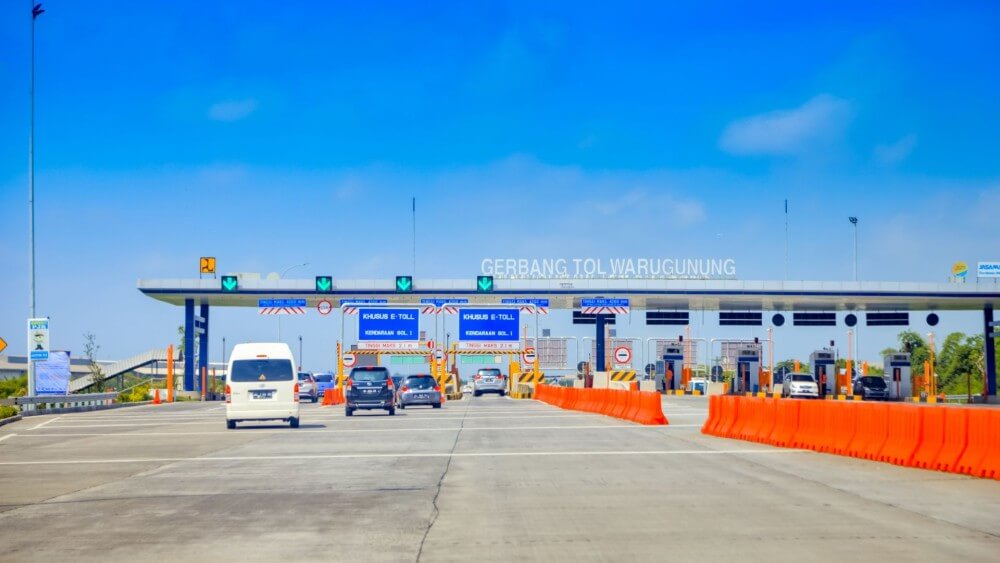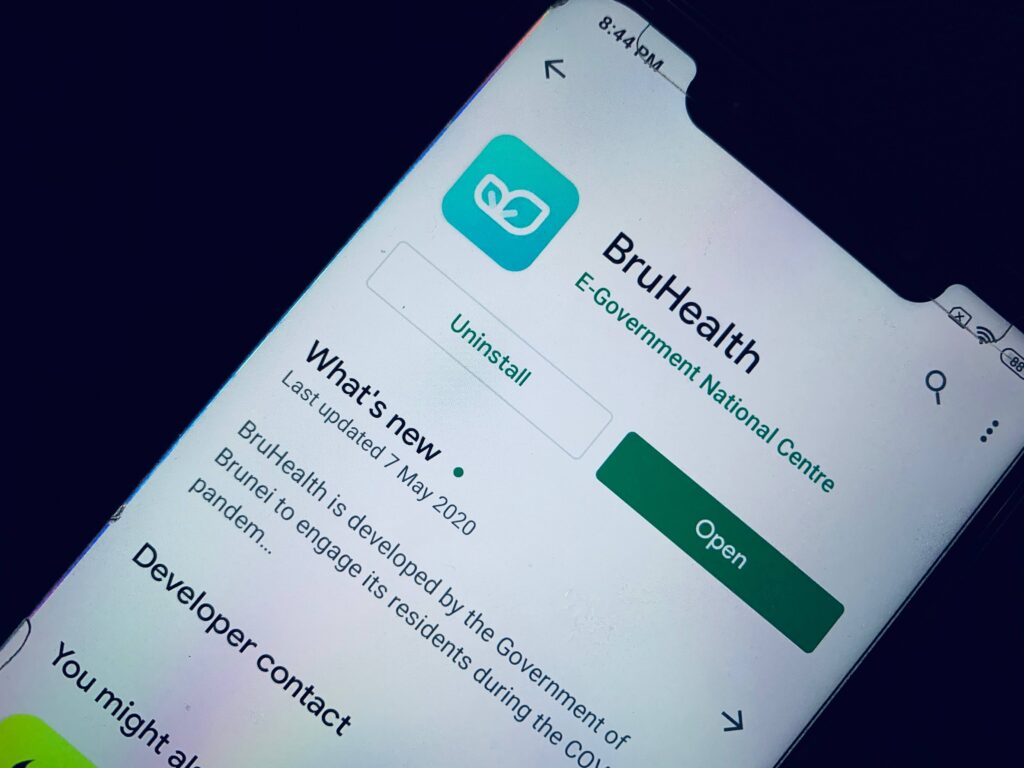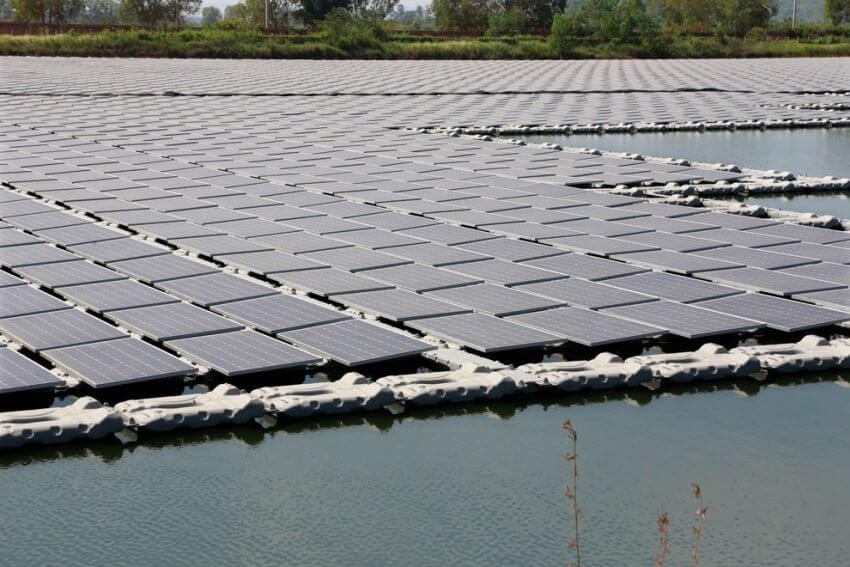Financing instrument and amount
The Toll Road Special Vehicle (BUJT) operating the MBZ Toll Road has divested 40% of its share in PT Jasamarga Jalanlayang Cikampek (JJC) worth IDR 4.38 trillion (USD 291.6 million) * to PT Margautama Nusantara (MUN) which is a subsidiary of Salim Group Company.
Background
On February 18, 2020, the Indonesian Government implemented a new legal framework for the limited concessions scheme (LCS) within the infrastructure sector. This new regulation is outlined in Presidential Regulation No. 32 of 2020 on Financing of Infrastructure through Limited Right of Utilisation.
The LCS supports asset recycling for infrastructure assets in Indonesia, including toll roads. As of 2023, there are 81 toll road sections in Indonesia that are either fully operational, partially operational, under construction, or in the land acquisition phase under the Toll Road Development Agreements (PPJT).
Developing toll roads in Indonesia is essential for addressing regional socioeconomic disparities. Toll roads significantly contribute to regional development and economic growth by improving the mobility and accessibility of goods and people. Additionally, they offer a more cost-effective transportation alternative. However, challenges in financing infrastructure development persist. According to the Ministerial Strategic Plan 2020-2024 of the Ministry of Public Works and Housing of the Republic of Indonesia, the government aims to construct 2,000 kilometers of toll roads. Given the constraints of the state budget, it is crucial to utilise capital from the private sector through alternative financing schemes.
Approach
The concept of asset recycling in infrastructure financing involves a value capture mechanism used by public entities, particularly government bodies, to generate revenue for new transportation infrastructure investments. This process includes leasing existing toll highway facilities to private sector investors, thereby capturing value from these assets. Asset recycling can be divided into a two-step process. First, monetising existing public assets to generate revenue, and second, using the proceeds for further investment in transportation infrastructure.
In Indonesia, every single one of the operating toll roads are operated under a Toll Road Special Purpose Vehicle or in Indonesia translated to Badan Usaha Jalan Tol (BUJT). Toll road development is undertaken by SOEs or private companies under Toll Road Development Agreement or Perjanjian Pengusahaan Jalan Tol (PPJT). The object of the concession that produces revenue for the BUJT is the operation of the toll road and not the asset itself. Under the current legal structure of the PPJT, toll road projects in operation are able to qualify for asset recycling schemes under the revised LCS framework.
The MBZ Toll Road was formerly known as the Jakarta-Cikampek II Elevated Toll Road and the BUJT operating it has divested 40% of its shares in PT Jasamarga Jalanlayang Cikampek (JJC) to PT Margautama Nusantara (MUN), a subsidiary of the Salim Group Company, for IDR 4.38 trillion (USD 291.6 million)*. JJC, a subsidiary of the state-owned enterprise Jasa Marga (JSMR), has been operating the MBZ Toll Road since 2017, with a concession period lasting 45 years until 2062. Despite the divestment, JJC will continue to operate the toll road according to the original concession agreement.
The proceeds from the divestment are part of JSMR’s asset recycling effort. These funds are intended to strengthen JSMR’s cash flow and will be allocated to other toll road investments, including the Yogyakarta-Solo section, Yogyakarta-Bawen section, and Gedebage-Tasikmalaya section.
Results
The ongoing toll road development project in Indonesia shows promising signs of addressing regional socioeconomic disparities and boosting economic growth. By enhancing mobility and accessibility, the project is contributing to regional development and facilitating more efficient transportation of goods and people. This improved connectivity is expected to stimulate local economies and help distribute economic benefits more evenly across various regions. Additionally, the project provides a more cost-effective transportation alternative, potentially reducing travel time and expenses for both businesses and individuals.
Furthermore, the project’s approach to financing—using asset recycling and alternative schemes—appears to be a practical strategy for overcoming infrastructure funding challenges. Leveraging private sector capital allows the government to advance its goal of constructing 2,000 kilometres of toll roads despite budget constraints. While the project is still in progress, the innovative financing methods utilised suggest a potential model for future infrastructure initiatives, demonstrating how public-private partnerships can support significant advancements in transportation development.
Key Learnings
Stretch capital expenditure.
JSMR is strategically using divestment to strengthen its cash flow and support the construction of additional toll road sections. This approach, part of their asset recycling program, aims to meet the company's capital expenditure needs for future projects. This in turn supports broader national objectives to provide connective infrastructure.
Asset recycling can take various forms.
There is no one single form of asset recycling. Divestment, as seen with the MBZ Toll Road, or asset handover, may be viable options for managing operating toll road projects in Indonesia and elsewhere. It is critical for government officials to understand their specific needs and explore mechanisms or models that meet these needs.
Legal frameworks are critical.
The new legal framework for the limited concessions scheme (LCS) within the infrastructure sector is critical to support asset recycling in Indonesia. Specific to toll role infrastructure, the presence of robust rules and regulations governing operation models and concession schemes support the ability of toll road projects to qualify for asset recycling under the LCS.
Sources
- World Bank (2020). Public Private Partnership Legal Resource Center. Indonesia. New concession model introduced to monetise existing Government/SOE infrastructure assets. Available at: https://ppp.worldbank.org/public-private-partnership/library/new-concession-model-introduced-monetise-existing-government-soe-infrastructure-assets
- Deloitte (2020). Client alert on new regulation for private participation through limited concession of state and SOE assets. Available at: https://www2.deloitte.com/content/dam/Deloitte/id/Documents/tax/id-tax-client-alert-apr2020.pdf
- White & Case (2024). Regulatory update: land procurement for toll road projects. Available at: https://www.whitecase.com/insight-alert/regulatory-update-land-procurement-toll-road-projects
- IDNFinancials (2022). Asset Recycling: JSMR Divests MBZ Toll for IDR, 4.38 Trillion. Available at: https://www.idnfinancials.com/id/news/45502/asset-recycling-jsmr-divest-mbz-toll-idr
- *Note that the USD values are calculated based on the average 12-month exchange rate in the year that the project was concluded. Retrieved from the site: https://www.x-rates.com/average/?from=USD&to=IDR&amount=1&year=2020#google_vignette




